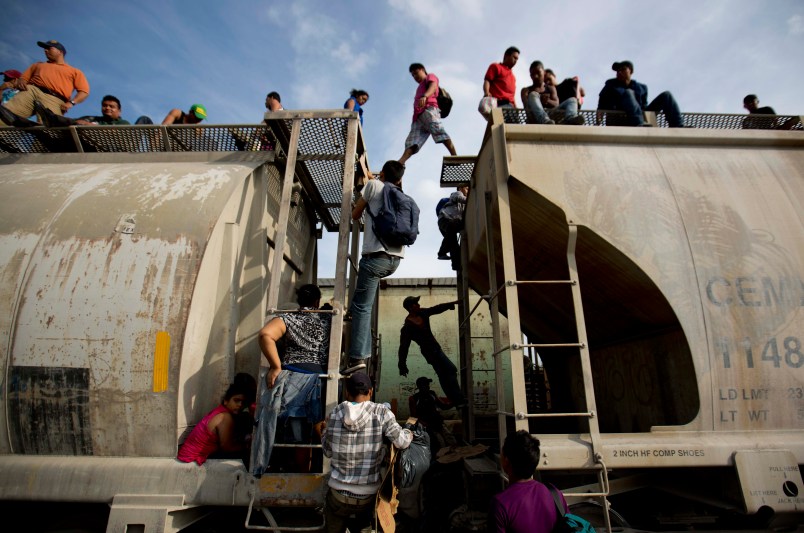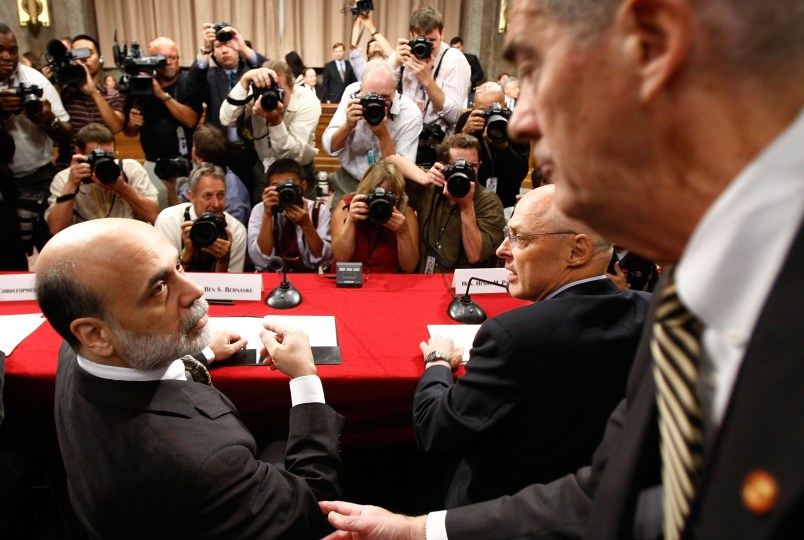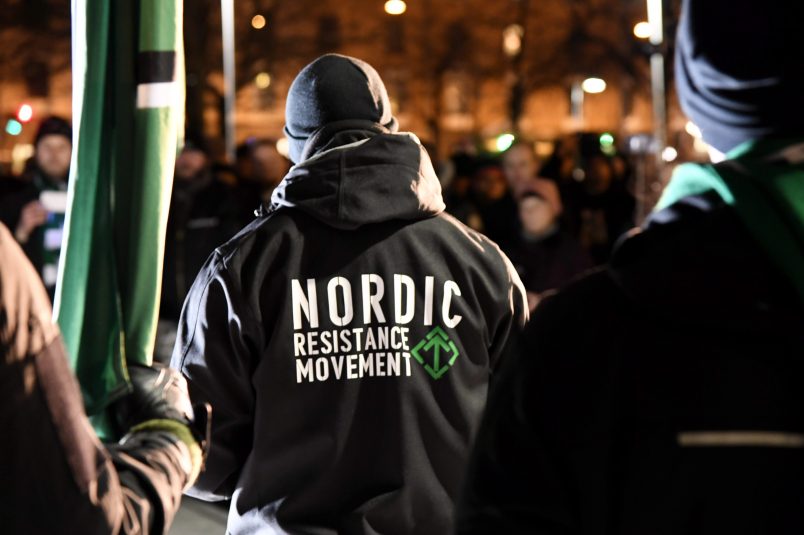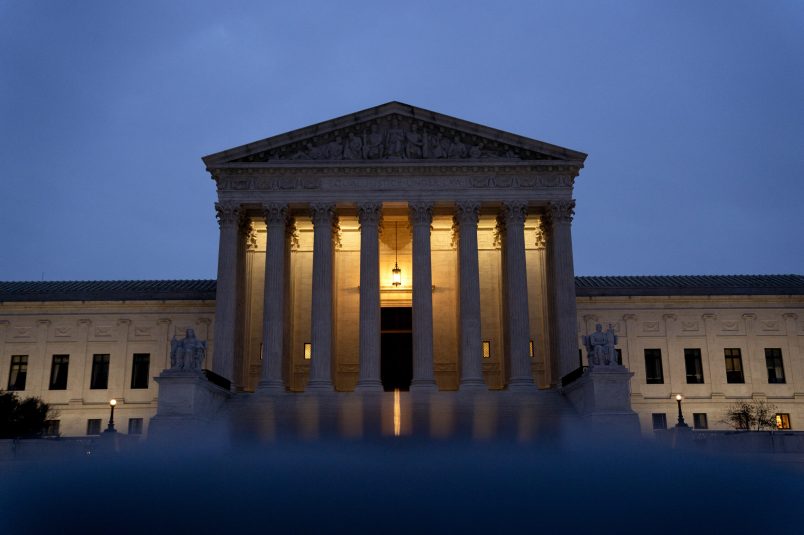Less than two years ago, President Obama pledged to confront the “bitter truth” of the human trafficking that goes on right here in the United States. “We can’t ask other nations to do what we are not doing ourselves,” he warned. Many of us hoped his words would usher in a new age in the fight against the abuse and exploitation of children.
Every day, hundreds of children are taking a harrowing journey from Central America to our Southern border, risking life and limb, suffering rape and exploitation, and indebting themselves to smugglers who are likely to sell them to human traffickers. Yet, in the face of this broad suffering, the administration and Congress threaten to undo hard-won protections for precisely these types of children.
The sense of justice that President Obama demanded we “burn into the cultures of every country” is at risk in the United States itself, threatened by a push for summary deportations of trafficked and persecuted children.
In 2008, Congress unanimously reauthorized, and President Bush signed, the Trafficking Victims Protection Reauthorization Act (TVPRA), strengthening the original seminal law on combating human trafficking in the United States and overseas. In recognition of migrant children’s vulnerabilities, the 2008 re-authorization enhanced protections for unaccompanied minors, requiring that children be screened in an individualized and appropriate manner for trafficking and asylum-related concerns.
Now President Obama and members of Congress want to roll back those safeguards to make it easier to deport these children quickly.
At the time of the TVPRA’s passage, a Republican administration and Congressional Republican and Democratic leaders understood that many children from non-contiguous countries, like Honduras or Bosnia, could only reach the U.S. border if they were being trafficked. As victims of trafficking and exploitation, lawmakers reasoned, these children deserved fair and meaningful access to US protections.
Since then, those protections have safeguarded unaccompanied children’s fundamental human rights. They have not provided amnesty, nor allowed undocumented non-citizens to access benefits undeservedly. To the contrary, the law has served as testimony to our nation’s abiding tradition of protecting vulnerable and abused children.
Unfortunately, these increased protections for refugee and trafficked children are now being blamed as one of the pull factors leading to 52,000 unaccompanied minors desperately flocking to our borders. However, the legislation passed over six years ago. Only now, in the last 18 months, are there such unprecedented numbers of children seeking refuge.
The real reason that children are streaming across the border is because the extreme violence and conflict that is ravaging Central America. Honduras, Guatemala, and El Salvador are among the countries with the highest murder rates in the world, countries where blood thirsty gangs, lawlessness and death squads are far too common. Children are suffering much of the brunt of this violence.
No mother wants the heartache of sending her 10-year-old child on a perilous escape toward the small hope of freedom and safety. No child wants to leave home. But this is what happens in afflicted nations where families are desperate to give their children an improbable chance of a better life. Isn’t it part of that larger historical arc of underground railroads taken to freedom and children put on boats and trains to escape Nazi Germany? Aren’t these Central American families akin to the parents who rushed their children onto boats as part of Operation Peter Pan to flee Castro’s Cuba; or the mother in Rwanda, begging a UN soldier to take her daughter away from the wolves of rape and brutality?
If Congress or the President guts the 2008 TVPRA, unaccompanied children will have fewer legal protections than adult migrants. They will be denied access to a lawyer and subject to ineffective screenings. We fear that children who may be eligible for relief as refugees and trafficking survivors will be forcibly deported. And, no one should be comfortable with what deportation really means for unaccompanied children.
It’s not too late for the U.S. to do better. The Obama administration, and Congress, can start by announcing a clear, unbending commitment to the child protections codified under President Bush and ensure that all unaccompanied children are afforded basic legal protections. From initial screening to the final stages of release or removal, the U.S. has a responsibility to protect any child’s most fundamental rights not to be exploited or persecuted.
American leadership on combating child trafficking and protecting human rights cannot afford to roll back. The Obama administration should live up to its commitment to lead this effort. For thousands of children, it’s a matter of life and death.
Malika Saada Saar is the Executive Director of Rights4Girls, a project focused on the human rights of young women and girls in the U.S. Melysa Sperber is the Director of the Alliance to End Slavery and Trafficking, a coalition of 11 U.S.-based human rights organizations that advocates for solutions to prevent and end all forms of human trafficking and modern slavery around the world.










Uhhh, no! Congress wants Obama to roll back those safeguards so they can tell any constituents outraged at GOTP callousness, “Hey, don’t look at me! The n(CLANG) did it!” The thing is (and it is difficult to remember this after two straight do-nothing-but-bitch Congresses), it is Congress that makes law! And in case anyone isn’t keeping track, Agent Orange’s exasperation that Obama “could do this all himself” flies in the face of both Boner’s own lawsuit and the GOTP’s faux outrage about the terrible, horrible way Obama has signed BILLIONS AND BILLIONS (aka approx. 175) of Executive Orders to get around their intransigence at getting anything done where he’d get some credit – oh, and where anyone other than corporations and the 1-percent get the goodie.
The “US Conscience” rationalized Hiroshima and Nagasaki. I don’t think this will put it under any strain.
It could weigh heavily on America’s conscience but Republicans don’t care.
The other TPM article says Obama is asking Central American leaders to come to the W.H. to discuss the very problem. Sounds like more than congress is trying to do.
Returning unwanted immigrants is an issue or problem for most nations across the globe. They usually intercept them before they cross the border. Obama’s plan to screen the kids in cooperation with the countries who are sending them is a good approach.
Japan uses guest workers and gave them airfare to return to their homes in South America.